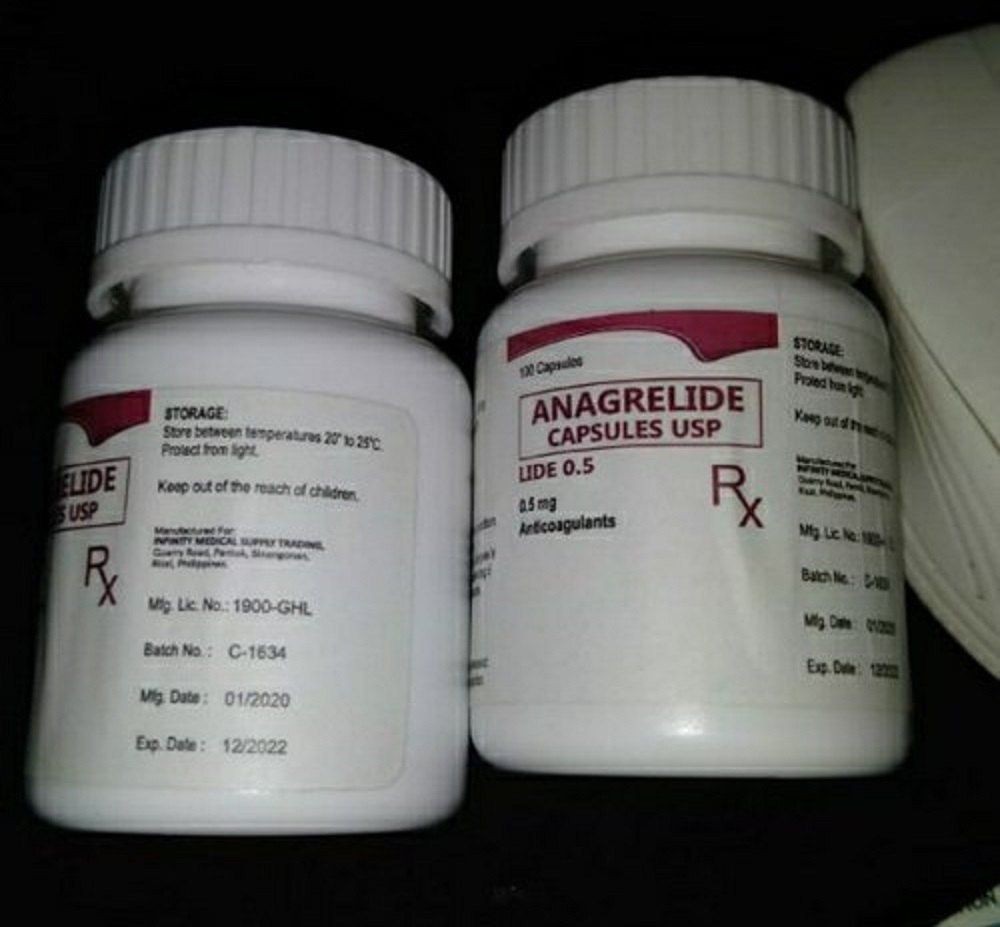
anagrelide – oral, Agrylin
Medication Uses How To Use Side Effects Precautions Drug Interactions Overdose Notes Missed Dose Storage USES: Anagrelide is used to treat a blood disorder (thrombocythemia), caused by bone marrow producing too many platelets, which can lead to circulation problems such as blood clots and bleeding. This drug reduces platelet production. HOW TO USE: Take this medication by mouth with or without food, usually 2 or 4 times a day. Children or those with liver problems may start with 1 dose per day. Your doctor will adjust your dose weekly to find the best dose for you. Take regularly, even if you feel well. Do not stop without consulting your doctor. Your blood counts will be monitored. SIDE EFFECTS: Headache, diarrhea, weakness, nausea, gas, loss of appetite, and dizziness may occur. Contact your doctor if these persist or worsen. Serious side effects include unusual bleeding/bruising, black stools, swelling of the ankles/feet, breathing problems, stomach/abdominal pain, tiredness, change in urine amount, pink/bloody urine, vomit that looks like coffee grounds. Seek immediate medical help for severe side effects. PRECAUTIONS: Tell your doctor if you are allergic to this medication or have any other allergies. Inform your doctor of your medical history, especially heart, lung, kidney, or liver problems. This medication may cause dizziness. Avoid activities requiring alertness. This drug may affect heart rhythm. Tell your doctor of all medications you take and if you have certain heart problems or low levels of potassium or magnesium. Consult your doctor before surgery. This medication must not be used during pregnancy. Prevent pregnancy while taking it. This medication may pass into breast milk. DRUG INTERACTIONS: Keep a list of all medications you use. Some products may interact, including sucralfate. Only take aspirin if your doctor approves it.
QUESTION
OVERDOSE: If overdose is suspected, contact a poison control center or emergency room immediately. US residents can call their local poison control center at 1-800-222-1222. Canada residents can call a provincial poison control center. Symptoms of overdose may include: unusual bleeding/bruising, fast heartbeat, vomiting. NOTES: Do not share this medication with others. Laboratory and/or medical tests should be performed before and periodically during treatment. MISSED DOSE: If you miss a dose, take it as soon as you remember. If it is near the time of the next dose, skip the missed dose and resume your usual dosing schedule. Do not double the dose. STORAGE: Store at room temperature away from light and moisture. Keep all medicines away from children and pets. Do not flush medications down the toilet. Properly discard this product when expired or no longer needed. Consult your pharmacist or local waste disposal company for more details. MEDICAL ALERT: Your condition can cause complications in a medical emergency. For information about enrolling in MedicAlert, call 1-888-633-4298 (US) or 1-800-668-1507 (Canada). Information last revised March 2014. Copyright(c) 2014 First Databank, Inc.


